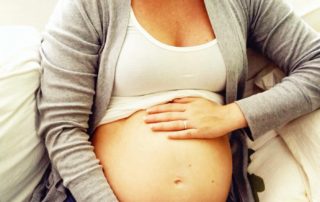Eating Disorders in Pregnancy and Postpartum Depression
The British Medical Journal recently published a brief, but comprehensive review of eating disorders in pregnancy by Veronica Bridget Ward. Eating disorders (anorexia nervosa, bulimia nervosa, and eating disorder not otherwise specified) most commonly occur in women of reproductive age and may be influenced by pregnancy and its associated weight gain and change in body shape. Some women experience a worsening of eating disorder symptoms, while others improve, or remain unchanged throughout the course of the pregnancy.








